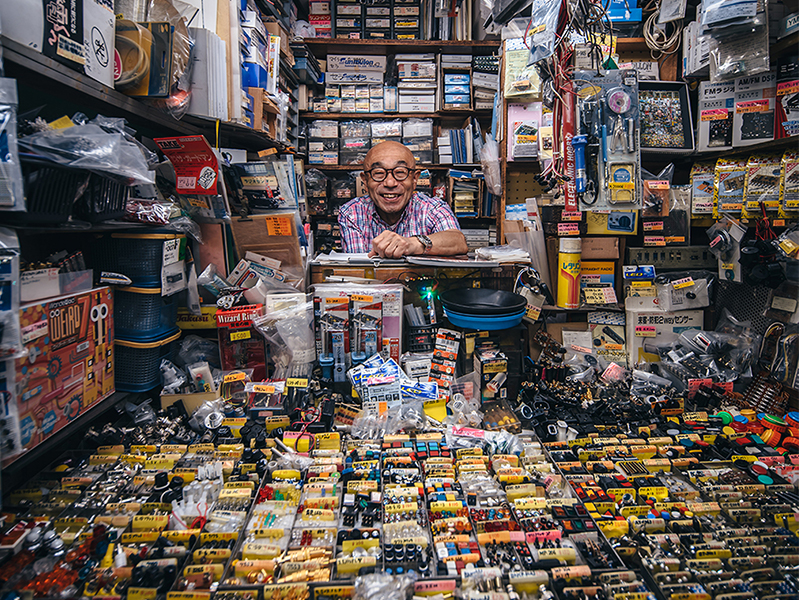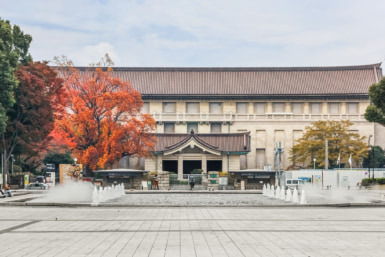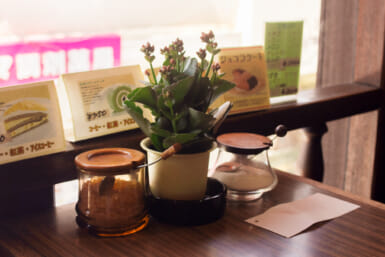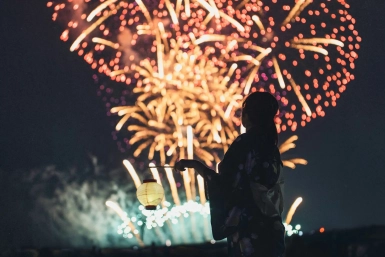In February 2017, Tokyo-based photographer RK was exploring the secondhand shops of Akihabara when he spotted an elderly man tending his photography shop, which was bursting with equipment, yet perfectly organized. RK snapped a photo of the man surrounded by his wares.
That spontaneous photograph, “Grandpa in Akihabara,” inspired the stylistic tone for the rest of RK’s work that evokes the bustling and dynamic culture of East Asian urbanized living. This evocative style, which RK calls DENSE, has made him one of Japan’s most diverse and exciting photographers.
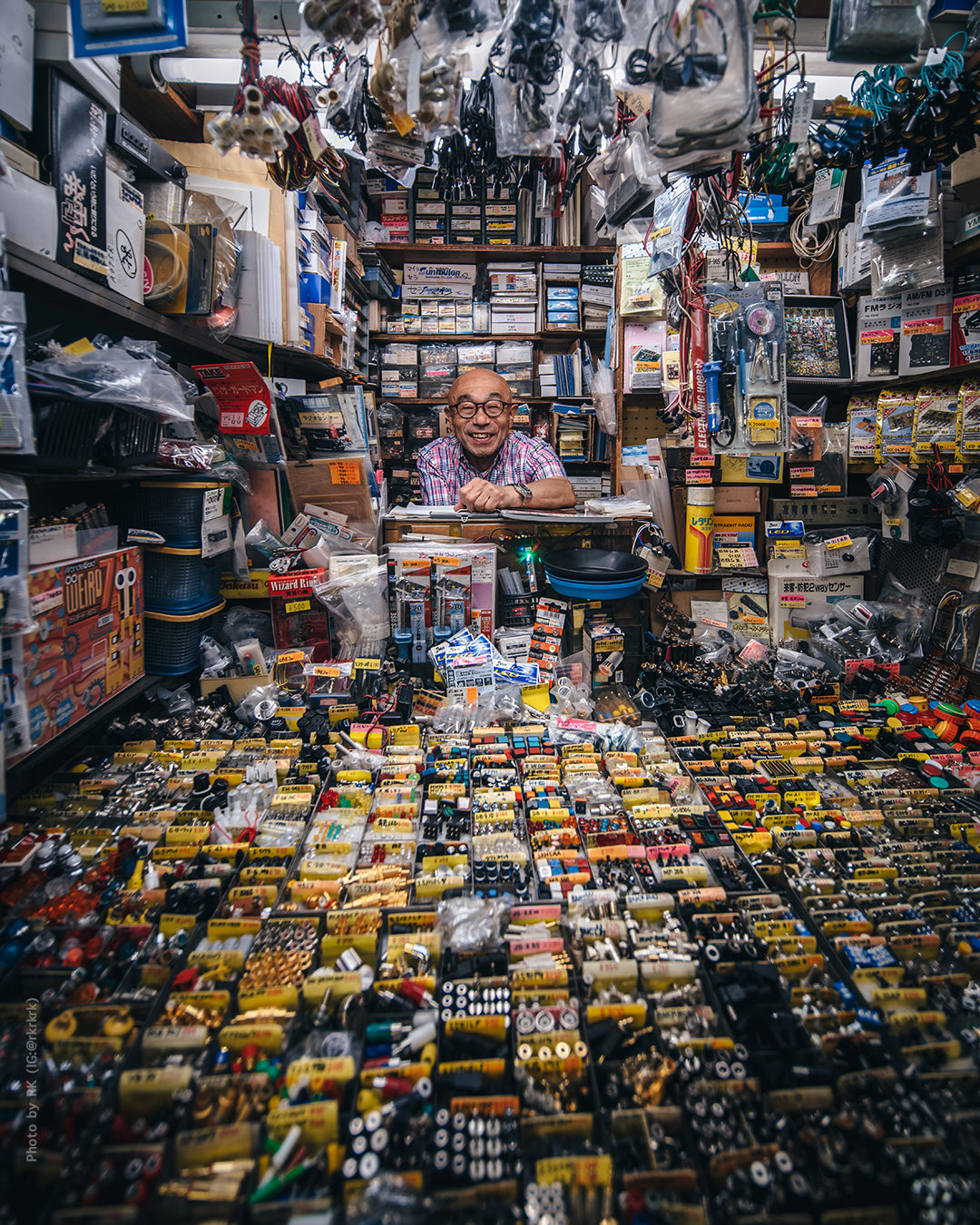
Born in Ibaraki Prefecture in 1982, RK (Ryosuke Kosuge) began taking photographs after joining the Athletics Far East Tokyo Running Club in 2013 to shed a little weight. This serendipitous choice would lead him to become the official photographer for the club; starting out using only his iPhone he earned the nickname, “the iPhone Photographer.” Though his camera equipment has advanced (he now works using Sony DSLRs, including A7 ii and A7R iii) he still enjoys using his iPhone on occasion to capture more spontaneous, neon-soaked shots in and around Tokyo.
RK steadily built up a reputation as a photographer and joined photography crews to gain experience. He was hanging out with such a crew when he shot “Grandpa in Akihabara.”
“I happened to spot this elderly man in a photography shop and took a photo of him,” says RK. “I really liked the look of that photo and that is where my fondness for this type of photography began. You could definitely say that this was the first photo of mine that was DENSE and influenced the rest of my work.”
RK’s DENSE images fill the frame with the subject, often using linear perspective to draw the viewer into the image, to the smiling store vendor in his compact shop or the full majesty of Mount Fuji, rising up through the tangled wires of a street at its base. This DENSE photography technique has seen his Instagram following jump to almost 600,000 followers, making him one of the most popular Japanese artists on the platform.
He utilizes this style in a variety of ways, working as a landscape, cityscape, street and fashion photographer. It is this diversity that has allowed his work to appear in reputable publications globally, from British newspapers to Taiwanese fashion magazines to American travel journals. His approach to each shoot differs slightly. For fashion shoots, he explains, he does more research in advance.
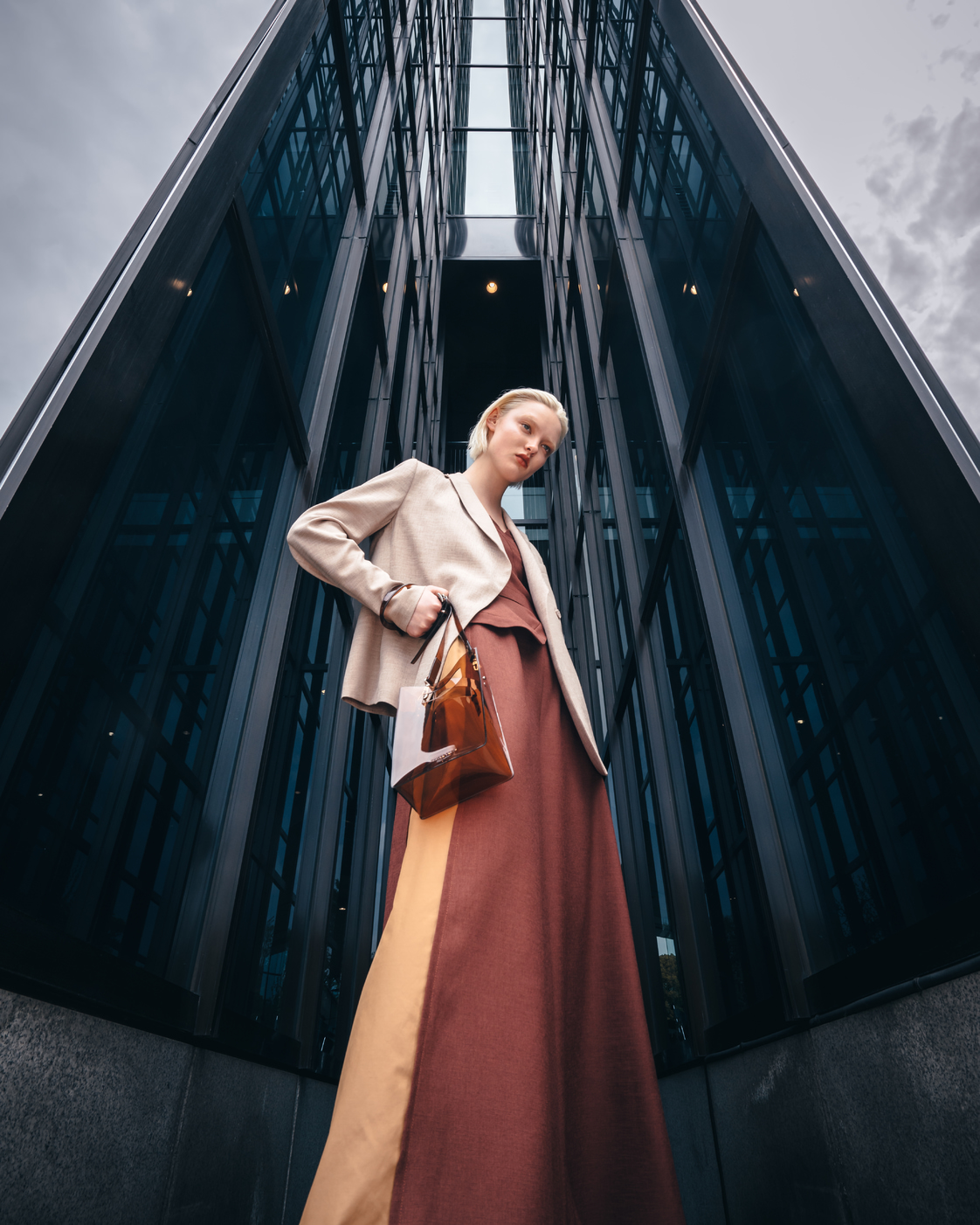
“Obviously the location scouting is important but because each occasion is so different I am quite spontaneous with how I approach each fashion shoot,” he says.
For his own personal portfolio, and on his travels, he will often check Google Maps beforehand to get an idea of the area, adding, “I also like to look at other people’s photography and think, ‘If that was me how would I have taken that shot any differently?’ I approach my shoots like that.”
Despite his popularity early on, RK only went freelance in 2018, finding that juggling the growing demand for his photography work wasn’t conducive to maintaining full-time employment.
“I was asked to work freelance for Paris Fashion Week and I realized I wouldn’t be able to take the time off,” he says. “So I just felt that with all the requests I was getting I might as well become a freelance photographer.”
Since then RK has taken more trips abroad, notably in Taiwan and China, to expand his portfolio and has worked with overseas clients as well as collaborating with fashion brands. His most recent collaboration was with the Tokyo-based brand POLIQUANT, which incorporates his images into the designs themselves.
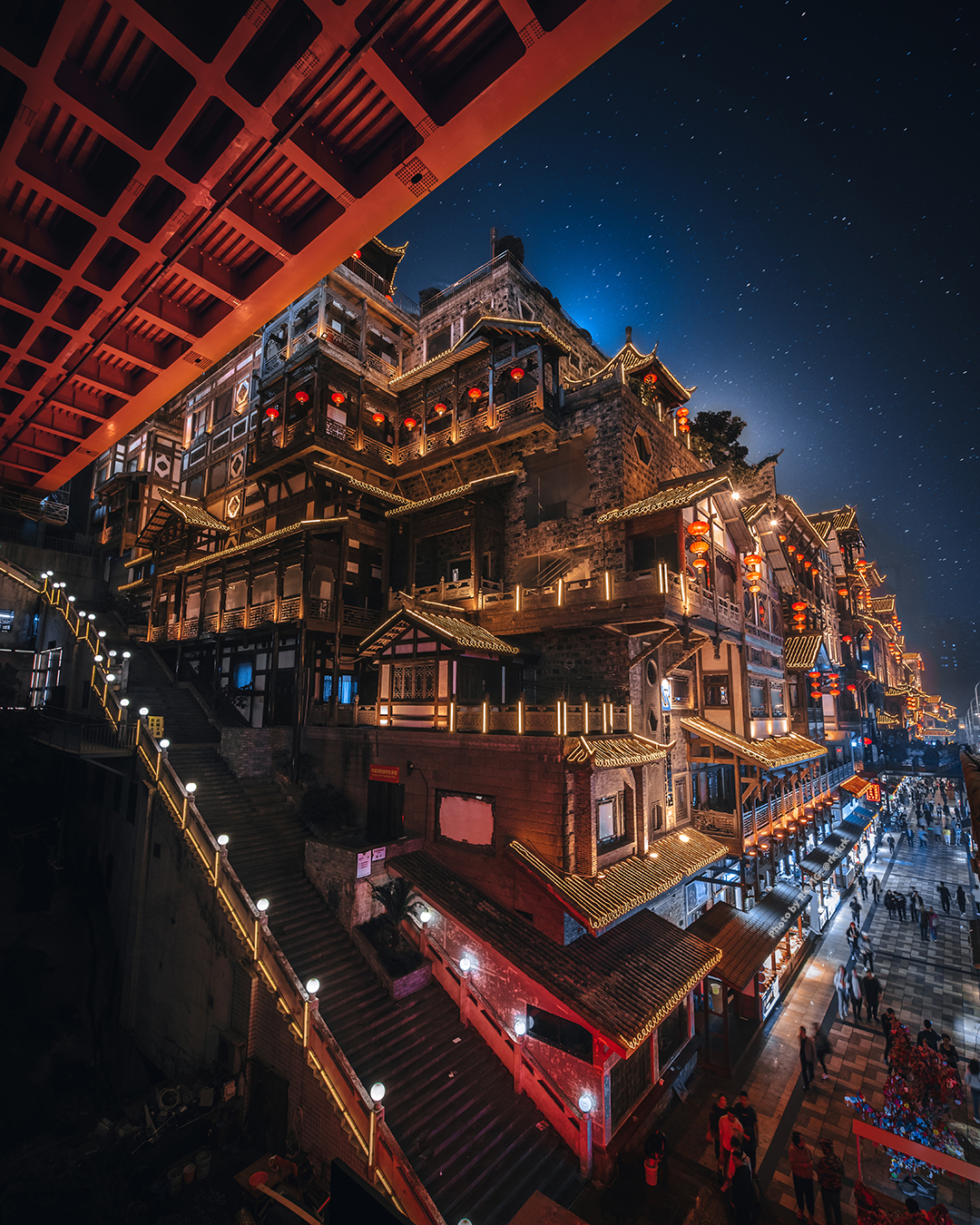
In March last year he was due to have his second exhibition at the DIESEL Gallery in Shibuya which, due to the pandemic, had to be moved online and was held virtually. RK says the online exhibition was well-received, just unusual, which could also describe the ensuing year.
“To be honest I haven’t been getting much work since Covid. A lot of my work is based overseas and most of it has been canceled, I’m still getting cancelations coming in now,” says RK. “It has been a little easier to shoot in Japan due to there being fewer tourists, but I can’t think of anywhere right now that I want to shoot. Japanese landscapes don’t really click with me currently. I enjoy traveling abroad more often.”
When discussing what his next steps will be he replies, “it is difficult to plan because it is difficult to know when the pandemic is going to end. For the moment I want to focus on collaborations with fashion brands until we can travel. But I would like to visit China again and even go to Iceland next.”
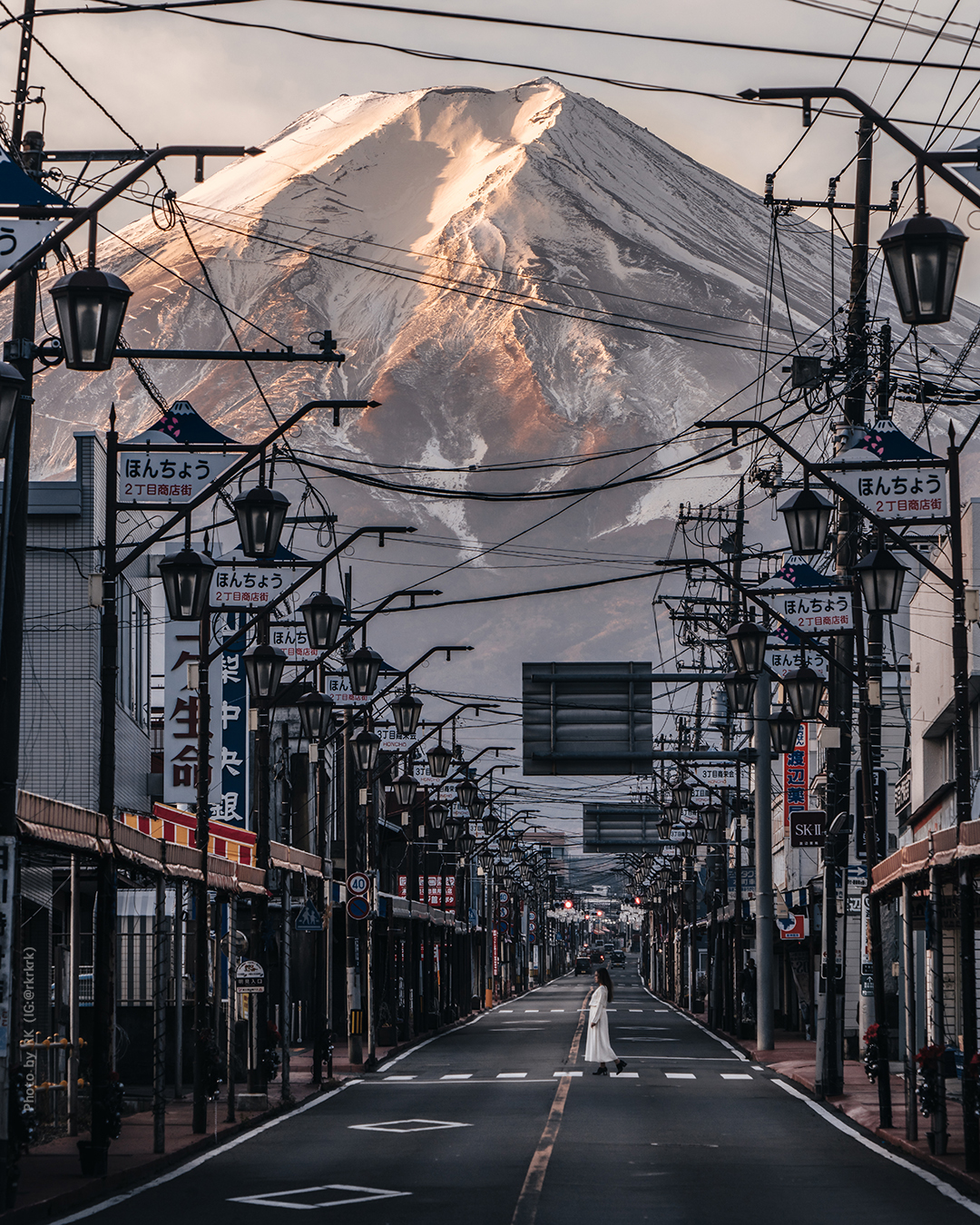
Those who follow his Instagram can continue to see new images uploaded regularly. For those interested in how RK gets these phenomenal shots, RK has started uploading short Instagram reels showing some of his photographic processes, which was in part inspired by the Instagrammer @jordi.koalitic, and is another way to keep busy and beat the corona-blues.
“I am quite serious about my photography but the videos are more to entertain, so there is a bit of a contrast between the purpose of the two,” he says. Until international travel is open again, RK’s images can still give viewers a gloriously colorful view into the culture and people of Japan and East Asia, with all of their energy and vibrancy.
RK’s work can be seen on Instagram at @rkrkrk
Interpretation by Dorothy Finan

